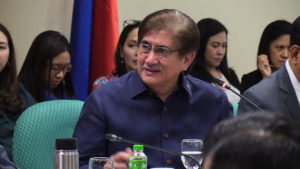BAGUIO CITY — Despite efforts to rid social media of fake news, next year’s elections may not be spared from manufactured events and information, according to a group seeking to stop the proliferation of fake data online.
The 2016 elections were flooded with 22 million fake Facebook accounts, said Tiffany Jungco, program officer of the coalition Fact Check Philippines (FCP), which conducted a day-long seminar and workshop at University of the Cordilleras here on Thursday.
Facebook has been criticized for providing fake news with a platform.
It has since taken down 13 million accounts for spreading false information. But 19 million fake accounts remained active because their operators had circumvented the platform’s policies against circulating falsehoods, Jungco said.
Falsehood’s weapons
FCP has been touring the country to lecture on the social phenomenon and to equip millennial voters with the ability to detect fake information that benefits or discredits candidates in the 2019 elections, said Von Carlo Yacob of FCP.
“Social media, particularly Facebook, will continue to be the most effective platform to spread fake news,” Jungco said.
According to a 2018 Pulse Asia survey, 47 percent (50 million) of Filipinos were on the internet, with 98 percent of them accessing social media every time they used the internet.
All of them have Facebook accounts.
Lawyer John Paul Martin, Baguio election officer, said social media had been used to attack candidates.
“I can make my own profile and claim that I am my rival, grab photos from them and post derogatory words and spread fake news, and no one will be able to find out it was me all along,” he told the Inquirer.
He said the Commission on Elections needed to be equipped to track down the source of fake news. —Valerie Damian


